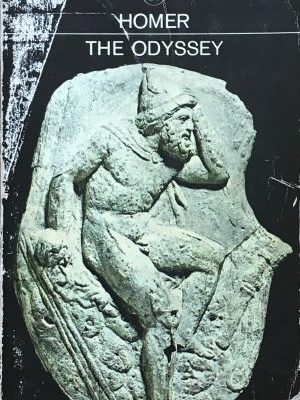The Ethics of Deconstruction Derrida and Levinas by Simon Critchley
25 $
- نام کتاب: The Ethics of Deconstruction : Derrida and Levinas
- نام فارسی: اخلاق ساختارشکنی : دریدا و لویناس
- نویسنده: سایمون کریشلی
- ناشر: Blackwell
- نوع جلد: Paper Cover
- وضعیت: نو
1 عدد در انبار
The Ethics of Deconstruction Derrida and Levinas by Simon Critchley
کتاب The Ethics of Deconstruction Derrida and Levinas (اخلاق واسازی: دریدا و لویناس) نوشته سایمون کریچلی (Simon Critchley) یکی از آثار مهم در حوزه فلسفه قارهای، واسازی (Deconstruction) و اخلاق است. این کتاب اولین اثری است که پیوند میان فلسفه ژاک دریدا و امانوئل لویناس را بهطور جامع بررسی میکند و نشان میدهد که چگونه واساختارگرایی میتواند بُعدی اخلاقی پیدا کند.
سایمون کریچلی، فیلسوف معاصر بریتانیایی، در این کتاب استدلال میکند که دریدا، برخلاف برخی منتقدان، به هیچوجه نسبیگرای محض نیست، بلکه واسازی او از متون فلسفی ریشهای عمیق در اخلاق دارد. او از ایدههای لویناس درباره دیگری، مسئولیت و اخلاق متافیزیکی بهره میگیرد تا نشان دهد که فلسفه دریدا نهتنها تخریبکننده سنتهای متافیزیکی غرب نیست، بلکه میتواند به بازاندیشی اخلاق و مسئولیتپذیری بینجامد.
مروری بر محتوا The Ethics of Deconstruction Derrida and Levinas
این کتاب شامل سه بخش اصلی است:
- مروری بر فلسفه واسازی دریدا و رابطه آن با سنت فلسفی غرب
- تحلیل اندیشههای اخلاقی لویناس و تأکید او بر «دیگری»
- پیوند بین دریدا و لویناس و چگونگی شکلگیری اخلاق در چارچوب واسازی
کریچلی در این اثر نشان میدهد که خوانش دریدا از متون فلسفی، صرفاً به معنای نابودی آنها نیست، بلکه هدف او ایجاد امکانی جدید برای تفکر اخلاقی است. این کتاب پایهای محکم برای درک ارتباط میان واسازی و اخلاق فراهم میکند.
موضوعات کلیدی کتاب The Ethics of Deconstruction
- مفهوم واسازی (Deconstruction) در فلسفه دریدا
- نقد سنت متافیزیکی غرب و جایگاه اخلاق در آن
- نظریه اخلاقی لویناس و اهمیت «دیگری» در فلسفه او
- چگونه واسازی میتواند یک بنیاد اخلاقی داشته باشد؟
- ارتباط بین متن، زبان، و مسئولیت در اندیشه دریدا و لویناس
- تأثیر این نظریات بر فلسفه، سیاست و مطالعات فرهنگی
چرا کتاب The Ethics of Deconstruction را مطالعه کنیم؟
- اگر به فلسفه قارهای، بهویژه دریدا و لویناس علاقهمند هستید، این کتاب یکی از جامعترین منابع برای درک پیوند میان واسازی و اخلاق است.
- کریچلی با نثری روشن و قابلفهم، پیچیدگیهای فلسفه دریدا و لویناس را توضیح میدهد و خواننده را با مفاهیمی بنیادین در این حوزه آشنا میکند.
- این کتاب برای دانشجویان فلسفه، نظریهپردازان فرهنگی و علاقهمندان به مطالعات انتقادی یک منبع ارزشمند است.
- مطالعه این اثر به شما کمک میکند تا درک عمیقتری از جایگاه اخلاق در فلسفه پسامدرن به دست آورید.
راهنمای خرید کتاب
- این کتاب در بسیاری از فروشگاههای بینالمللی از جمله آمازون (Amazon) و بارنز اند نوبل (Barnes & Noble) موجود است.
- برخی از کتابفروشیهای ایران که کتابهای زبان اصلی را چاپ میکنند، ممکن است نسخهای از آن را داشته باشند.
- ما یک نسخه نفیس از نسحه اوریجینال را داریم. برای هماهنگی خرید با ما تماس بگیرید.
قیمت حدودی کتاب
- نسخه چاپی (Paperback یا Hardcover): بین ۳۰ تا ۵۰ دلار
- نسخه الکترونیکی (E-Book یا Kindle): بین ۲۰ تا ۳۵ دلار
جمعبندی
The Ethics of Deconstruction اثری بنیادین درباره رابطه میان واسازی، فلسفه دریدا و اخلاق لویناسی است. این کتاب نهتنها یک بررسی انتقادی از سنت متافیزیکی غرب ارائه میدهد، بلکه نشان میدهد که چگونه واسازی میتواند در ایجاد یک نگرش اخلاقی مدرن نقش داشته باشد. اگر به فلسفه معاصر، واسازی، اخلاق و مسئولیتپذیری در اندیشه فلسفی علاقه دارید، این کتاب یک مطالعه ضروری برای شما خواهد بود.
| وزن | 0.4 کیلوگرم |
|---|---|
| ابعاد | 23 × 15 × 2 سانتیمتر |













نقد و بررسیها
هنوز بررسیای ثبت نشده است.